

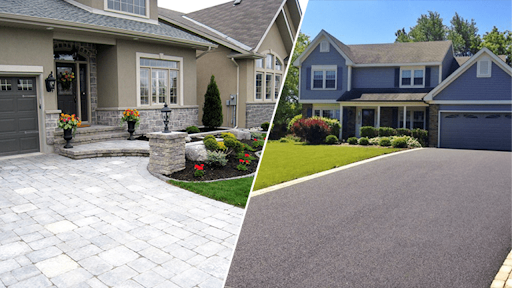
Your driveway takes a beating every day. In fact, it can face over 1,000 vehicle passes a year, not to mention weather extremes.
Choose the wrong surface, and you could be staring down cracks, potholes, and costly repairs far sooner than expected. That’s money and time you could spend elsewhere!
This guide breaks down concrete and asphalt driveways, comparing pros, cons, costs, and lifespan, so you can invest confidently in a surface built to last.
Concrete driveways are a durable and long-lasting option for residential and commercial properties. They are made by pouring a mixture of cement, water, sand, and aggregate into a prepared base, then smoothing and curing it to create a strong surface.
Concrete can be customised with different finishes, colours, and textures to complement the style of a property. Common finish options include plain concrete, exposed aggregate, and decorative stamped designs, offering flexibility for both functional and aesthetic needs.
Concrete driveways are known for their ability to withstand heavy loads and resist wear from regular vehicle use. With proper installation and maintenance, they can last for decades while retaining their appearance and performance.
Their low maintenance requirements and versatile design possibilities make concrete a popular choice for homeowners looking for a balance between strength, longevity, and visual appeal.
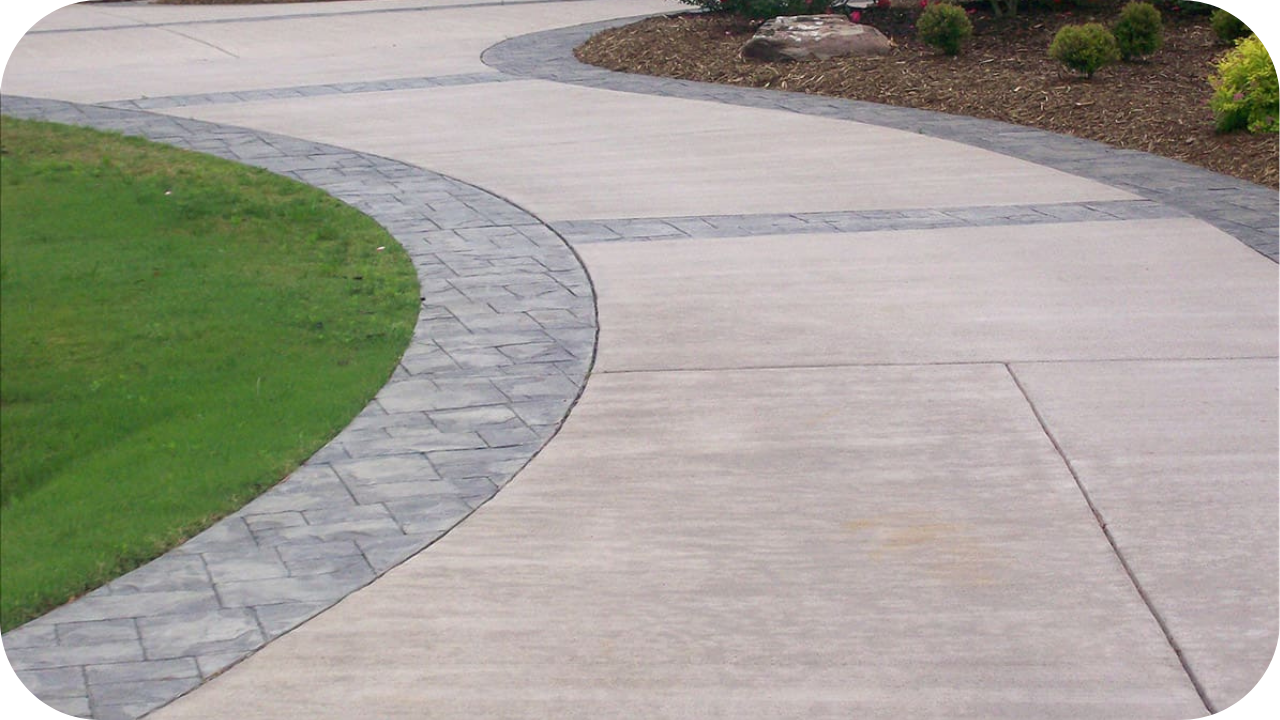
Concrete offers a range of benefits that make it a strong choice for driveways, providing long-term value for various property types. Here are the benefits:
Concrete has many strengths, but certain limitations can impact its suitability for some properties. Here are the disadvantages:

Asphalt driveways are a cost-effective and practical choice for many homeowners and commercial property owners. They are constructed by laying a hot mix of asphalt over a compacted base, then rolling it to create a smooth, even surface.
The result is a strong and flexible driveway that can handle frequent traffic and adapt to temperature changes without significant damage.
Asphalt’s dark colour provides a sleek, uniform look that complements a variety of property styles. It is quick to install and can often be used shortly after construction. While asphalt driveways generally have a shorter lifespan than concrete, they are easier and less expensive to repair or resurface.
Regular maintenance, such as sealing every few years, helps preserve their durability and appearance. This combination of affordability, function, and ease of upkeep makes asphalt a popular driveway material choice.
Here are the advantages of Asphalt that make it a popular driveway material in many Australian residential areas:
While asphalt is cost-effective and quick to install, it comes with certain limitations that may influence its suitability for some projects. Here are the limitations:
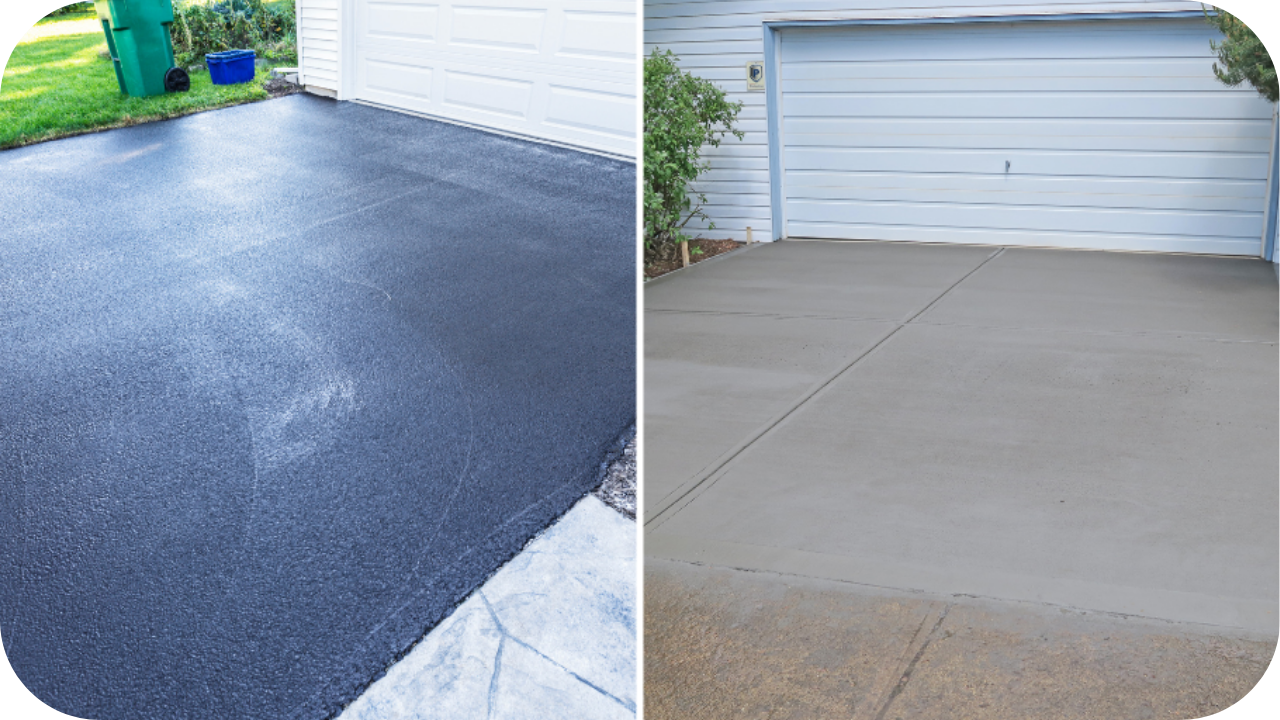
Understanding how concrete and asphalt differ in performance, maintenance, and aesthetics helps property owners make informed choices for lasting driveway value. See the difference:
Concrete driveways generally last 30 years or more with minimal upkeep, while asphalt often requires resurfacing within 15 to 20 years.
Concrete resists deformation under heavy loads, making it ideal for high-use areas. Asphalt offers flexibility in colder climates, reducing cracking from freeze-thaw cycles. The choice depends on expected service life, climate, and performance priorities.
Concrete typically needs occasional cleaning and sealing to preserve its look and prevent surface stains. Asphalt requires more frequent sealing, generally every few years, to maintain integrity and prevent water infiltration.
Neglecting maintenance can shorten lifespan for both materials. Owners should weigh the time, effort, and costs associated with upkeep when deciding which surface best fits their schedule and long-term plans.
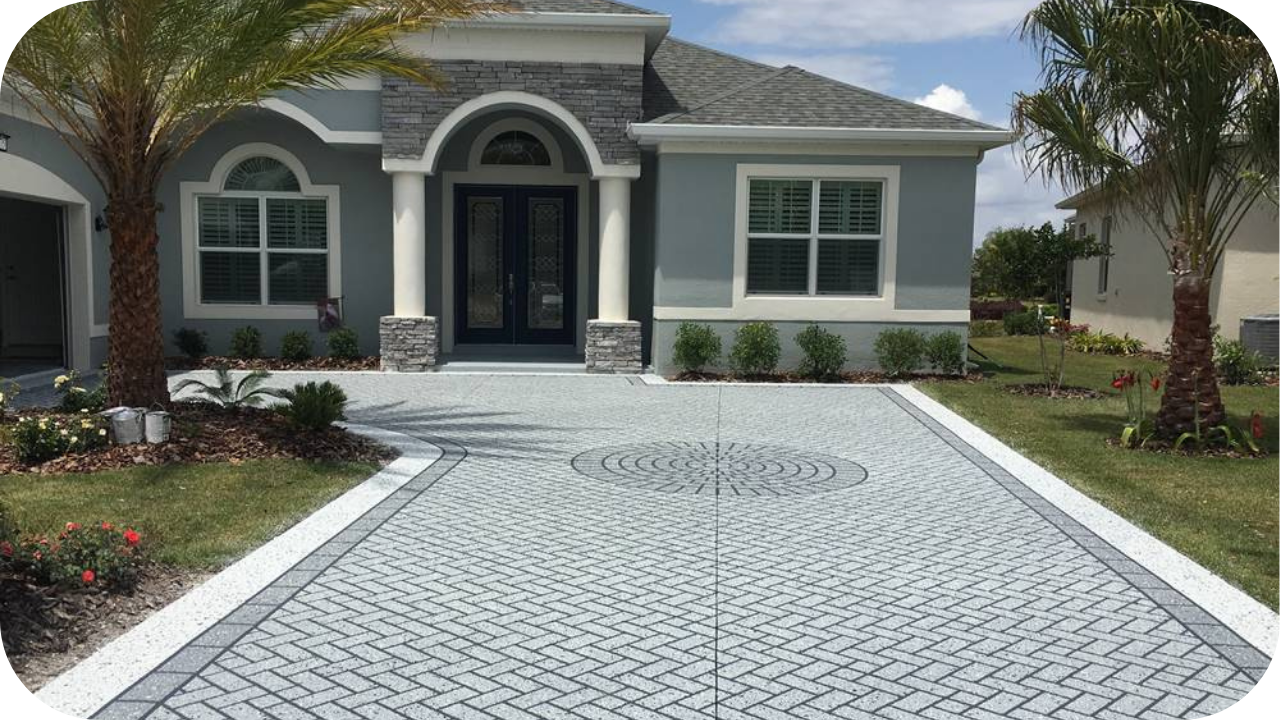
Concrete offers a range of finishes, colours, and textures, allowing customisation to complement property style. Stamping, staining, and exposed aggregate can enhance visual appeal.
Asphalt is limited to a black finish, providing a uniform, functional look. While asphalt suits straightforward designs, concrete delivers greater creative flexibility for those seeking a distinctive and visually appealing driveway that blends seamlessly with surrounding landscaping and architecture.
Asphalt can often be installed and ready for use within a couple of days, making it faster for urgent projects. Concrete requires longer curing, typically about a week, before it can handle vehicle loads.
The additional time for concrete may be worthwhile for its durability and design options. Project timelines should factor in these differences when scheduling and budgeting for installation.
When comparing driveway materials, cost is often the deciding factor. Asphalt driveways generally have a lower initial installation cost, making them attractive for budget-conscious projects.
However, asphalt typically requires more frequent maintenance, such as sealing and resurfacing, which can increase long-term expenses.
Concrete driveways cost more to install upfront but have a longer lifespan and lower maintenance needs. This often means the overall cost evens out over time. Factors such as climate, soil stability, and intended use also influence pricing.
In areas with extreme heat or heavy vehicle loads, concrete may provide better value by offering greater durability and reduced repair requirements.
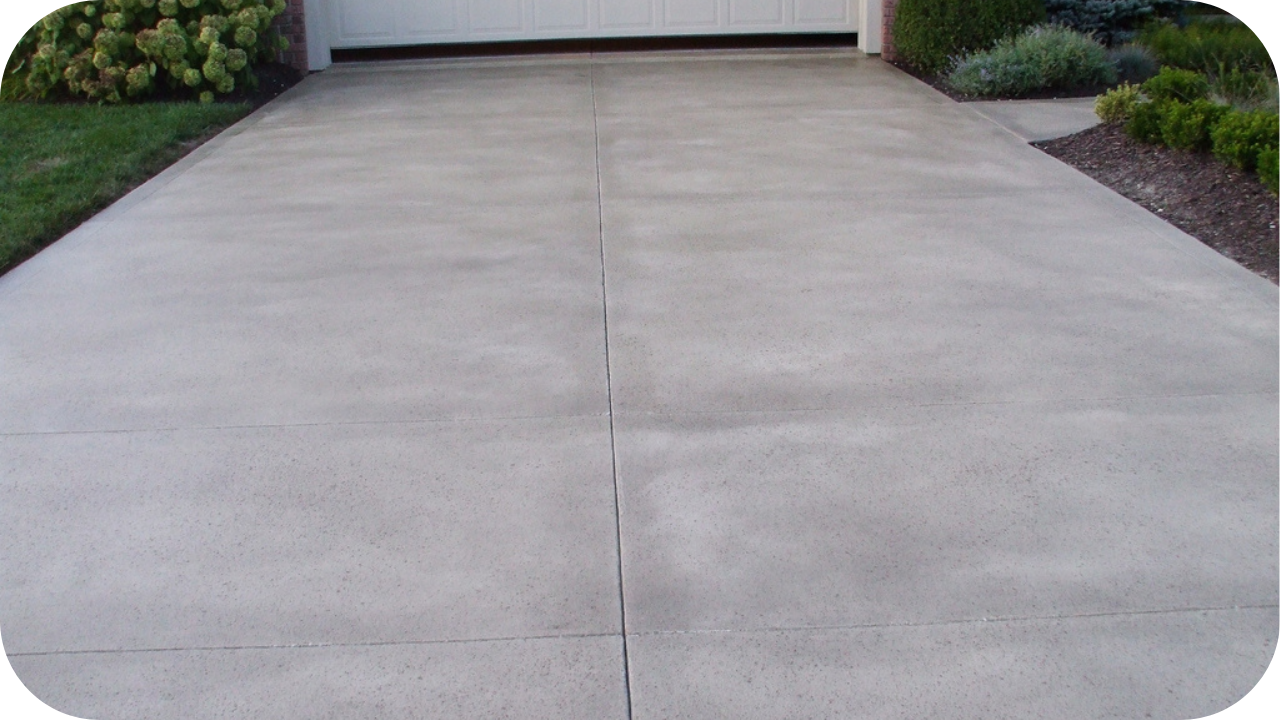
Both concrete and asphalt have environmental considerations that may influence choice. Asphalt is recyclable, and reclaimed asphalt pavement can be used in new projects, reducing waste. However, it absorbs more heat, contributing to higher surface temperatures.
Concrete has a longer lifespan, which means less frequent replacement, but its production involves higher carbon emissions due to cement manufacturing. Light-coloured concrete can help reduce heat retention, improving surrounding comfort.
Choosing locally sourced materials and incorporating recycled content in either option can lower the environmental footprint. Maintenance practices, such as sealing and cleaning, also play a role in extending the life of the driveway and reducing overall impact.
Choosing between concrete and asphalt depends on your priorities, budget, and site conditions. If you value long lifespan, minimal upkeep, and design flexibility, concrete is a strong investment.
Its ability to handle heavy loads and maintain appearance for decades makes it ideal for properties seeking durability and visual appeal.
On the other hand, asphalt offers a lower initial cost and faster installation, which is appealing for projects needing quick turnaround or working within a tighter budget. It performs well in colder climates due to its flexibility, but requires more frequent maintenance.
Consider factors such as climate, traffic levels, aesthetic goals, and how long you plan to stay on the property. The right choice balances performance with cost-effectiveness. For tailored advice and quality installation, consulting experts like Urban Pour ensure you make a decision that delivers long-term satisfaction.
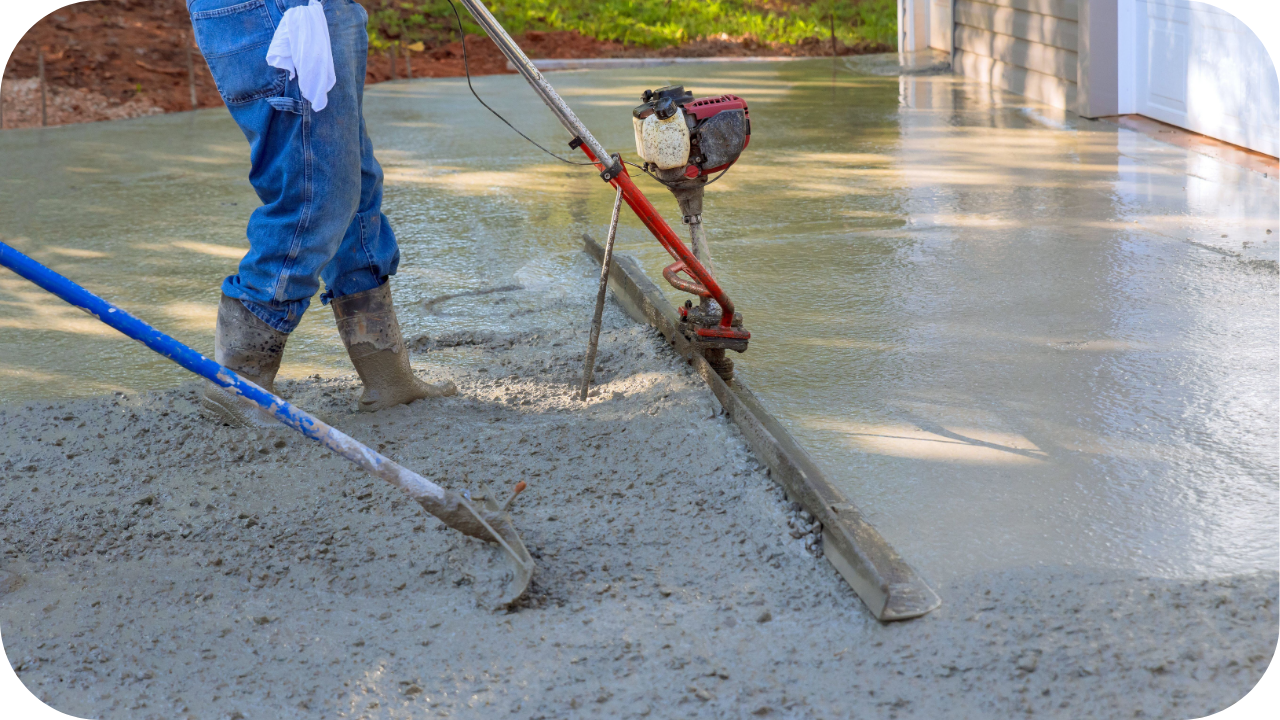
Urban Pour has the expertise and commitment needed to deliver high-quality concrete driveway installations tailored to your property’s needs. Our team uses premium materials and proven construction techniques to ensure your driveway is strong, durable, and visually appealing.
We offer a wide range of finish options, from plain concrete to decorative designs, allowing you to choose a style that enhances your home’s street appeal.
Every project begins with a detailed site assessment, ensuring the base preparation and drainage are designed for long-term performance. Our skilled professionals take pride in precise workmanship, delivering driveways that not only meet but also exceed Australian standards.
We focus on completing projects on time and within budget while keeping communication clear at every stage. By choosing Urban Pour, you invest in a driveway that combines functionality, style, and lasting value, backed by a trusted and experienced team.
Choosing between concrete and asphalt comes down to balancing style, budget, and long-term needs. Each material has its own advantages, from the durability and design flexibility of concrete to the cost-effectiveness and quicker installation of asphalt. The right decision ultimately depends on your property, your lifestyle, and the value you want your driveway to provide over time.
At Urban Pour, we understand that every project is unique. Our team works closely with you to assess your needs, recommend the most suitable material, and deliver results that combine strength, performance, and visual appeal. Whether for a family home, an investment property, or a commercial site, we ensure your driveway is built to last.
Contact us today to discuss your project and receive expert advice tailored to your space. With the right guidance, your new driveway will be both practical and stylish for years to come.

Safe concrete pours begin with strong, well-designed formwork. This article breaks down essential formwork rules that keep structures stable and reduce the risk of failures.
See more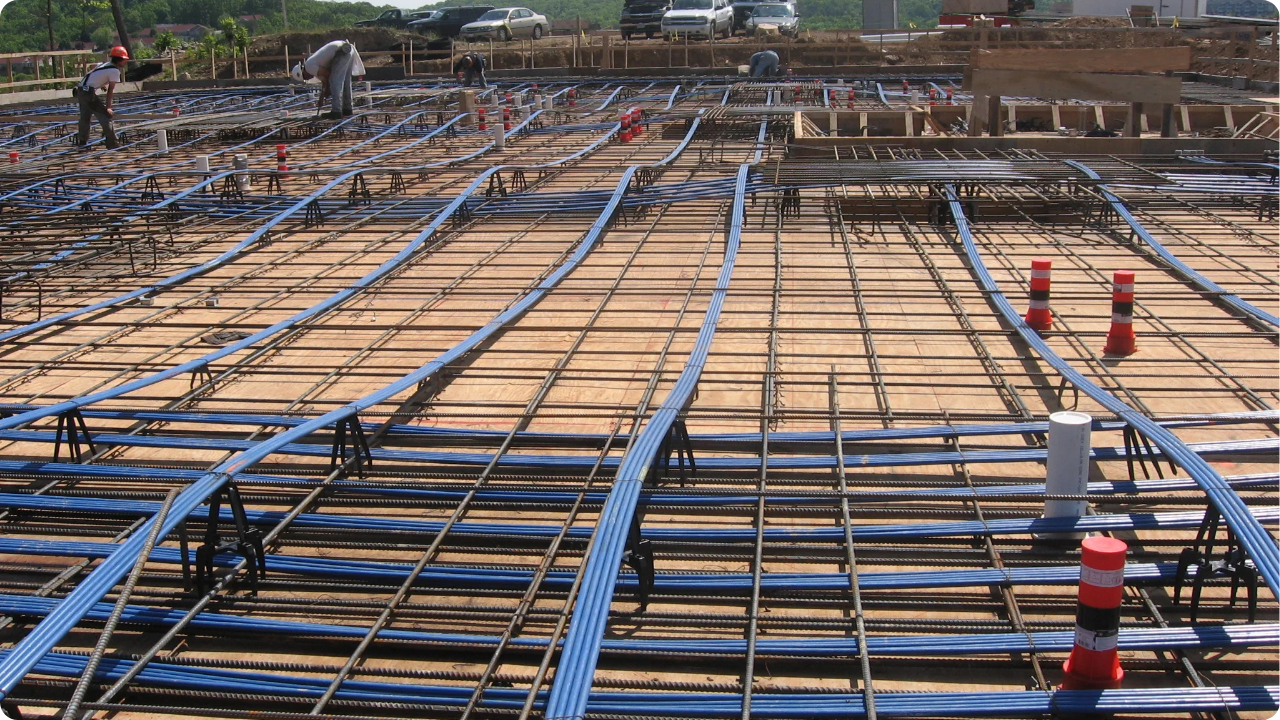
Poor post-tensioning can lead to cracking, deflection, and long-term structural issues. This article outlines common mistakes and shows how to avoid them for safer concrete performance.
See more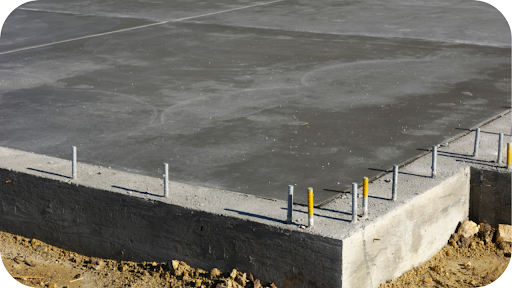
Choosing the right concrete slab thickness protects your project from cracks, movement, and costly repairs. Understand key factors like soil, loads, and engineering to build with confidence.
See more